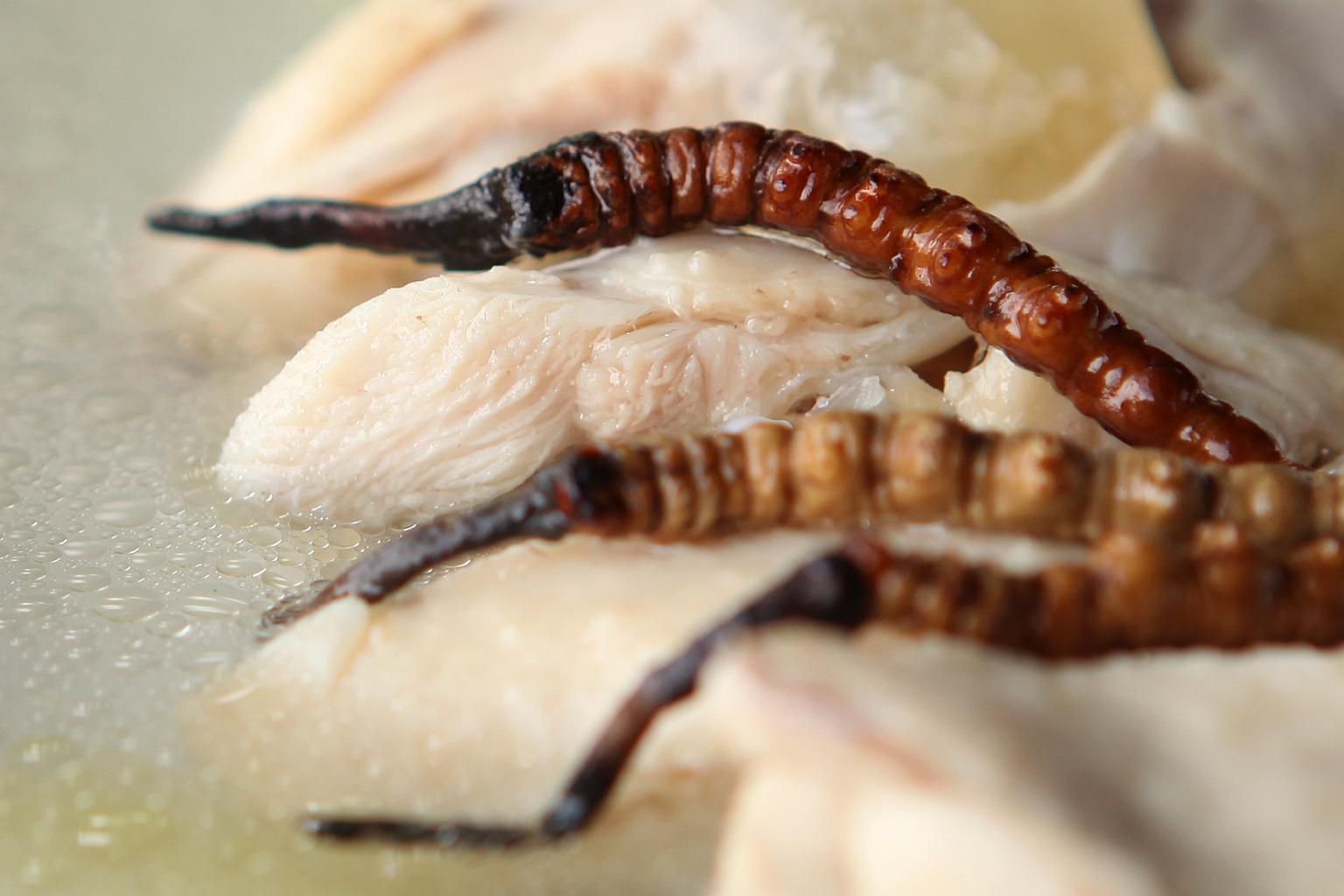Cordyceps 'likely led to post-op bleeding'
Woman who died after brain op consumed the herb which has a blood-thinning effect
Sign up now: Get ST's newsletters delivered to your inbox

Cordyceps, commonly taken as a supplement, have a blood-thinning effect.
PHOTO: ST FILE
Amir Hussain
Follow topic:
A 58-year-old woman who took the Chinese herbal medication cordyceps the week before an operation to remove a benign brain tumour, but failed to inform her doctors, died from extensive bleeding in her brain last year.
Madam Chew Kim Kee's tumour had been successfully removed, but she developed a blood clot at the surgery site shortly after her operation at Singapore General Hospital (SGH). There was also diffuse bleeding from all areas of the surgery.
This was consistent with coagulopathy - a condition where the blood's ability to clot is impaired. Cordyceps, commonly taken as a supplement, has a blood-thinning effect, which lengthens the time for a blood clot to form.
After two more operations to stem the bleeding, Madam Chew remained in a coma. She died three days later on June 5 last year.
Yesterday, State Coroner Marvin Bay found her death to be a medical misadventure.
National University Hospital's head of neurosurgery Yeo Tseng Tsai, appointed by the Academy of Medicine of Singapore as an independent expert to assist the court, found it most likely that Madam Chew's consumption of cordyceps before her operation caused her unusual post-operative bleeding.
Quoting from Associate Professor Yeo's report, Mr Bay said: "I hope that this patient will not have died in vain and that the association between cordyceps ingestion and intra-operative bleeding will be disseminated widely to the Singapore population, as many of the Chinese population here are taking cordyceps regularly for its purported healthy effects."
The coroner added: "Given the prevalent use of cordyceps as a restorative supplement by patients, who are often proffered cordyceps by their well-meaning family members, I join Assoc Prof Yeo to take the view that steps should be taken to increase awareness... of this significant risk...
"To be safe, patients undergoing surgery should be mindful of the recommendation in medical literature for cordyceps ingestion to cease two weeks before elective surgery," added Mr Bay.
Madam Chew, who owned a construction company, had suffered frequent headaches for two years. On May 18, she was unable to walk and her husband called for an ambulance to take her to SGH. A large brain tumour measuring 6.6cm by 4.9cm by 6.2cm was found.
Surgery was done on June 2, led by Associate Professor John Thomas from the National Neuroscience Institute. But shortly after, doctors found a clot in her brain from post-operative bleeding.
Immediate surgery removed the clot, but soon, the pressure in her brain rose and a new area of bleeding was found. An immediate re-operation was done but doctors found it very difficult to stop the bleeding, despite medication.
It was also during this surgery that Madam Chew's husband, Mr Li Yong Li, told her medical team that she had taken cordyceps supplements in the week before surgery. He estimated this to comprise five to six small pieces, which had been boiled.
While Madam Chew had been asked by doctors before surgery if she had taken herbal medicine, she had replied in the negative. Mr Li said she may have thought that cordyceps was not a medicine, but a health supplement.

